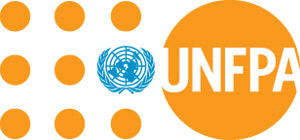United Nations Population Fund (UNFPA) has asserted that financial pressure, health concerns, gender rights backlash, global conflicts, and climate change fears are preventing young people from having the number of children they desire.
According to the UNFPA latest “State of World Population Report,” a global survey of over 14,000 people revealed that one in five individuals under age 50 expect to have fewer children than they ideally want, while almost a third of those over 50 confirmed they had fewer children than desired.
The revelation was made by the executive director of UNFPA, Dr. Natalia Kanem, during the commemoration of 2025 World Population Day held yesterday, at the Government House, Bauchi State. Kanem noted that nearly one-third of respondents over the age of 50 reported having fewer children than they had hoped for.
Represented by UNFPA’s Gender/Reproductive Health Analyst and State Programme Officer, Deborah Tabara, she said, “The real fertility crisis is a lack of reproductive agency. Young people are often unable to create the families they envision, yet they are blamed for declining fertility rates and expected to solve them.”
She emphasised that fertility rates are often mistakenly viewed as entirely based on personal choice, ignoring systemic challenges such as limited access to resources, social pressures, and restrictive policies.
Dr. Kanem called for creating opportunities instead of obstacles for young people, saying that, “Let’s listen to what young people want and need. Let’s build the conditions that empower them to make choices freely and build hopeful futures.”
She also warned against misguided narratives that claim youth are avoiding parenthood due to selfishness or career prioritization. These assumptions, she said, lead to harmful policies like restricting contraceptive access, which in turn result in more unintended pregnancies.
Kanem further outlined measures needed to help young people make informed reproductive choices, adding that securing jobs and sufficient income for housing and other living costs would help young people feel financially stable and broaden their choices about when and whether to have children.
She emphasised that sexual and reproductive health rights are key to inclusive, sustainable societies, adding that, “Only shared solutions grounded in human rights can address the realities of our demographically diverse world.”
UNFPA reaffirmed its partnership with the Bauchi State Government, pledging continued support in developing inclusive strategies and programmes that maximize the potential of the state’s youthful population.
The agency reiterated its mission of achieving a world where every pregnancy is wanted, every childbirth is safe, and every young person can fulfill their potential.
This year’s theme for World Population Day is “Empowering Young People to Create the Families They Want in a Fair and Hopeful World.”





